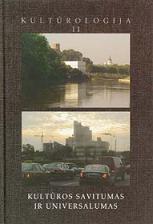ISTORIOGRAFINIS PLIURALIZMAS: GLAUSTA MOKYKLŲ IR METODŲ APŽVALGA
HISTORIOGRAPHICAL PLURALISM: A CONCISE OVERVIEW OF SCHOOLS AND METHODS
Author(s): Aivaras StepukonisSubject(s): History
Published by: Lietuvos kultūros tyrimų
Keywords: economic historiography; geographical historiography; global historiography; environmental historiography; social historiography; pluralism;
Summary/Abstract: The ninteenth century in Europe was the time when the discipline of historiography in the hands of such men as Leopold von Ranke and Berthold Georg Niebuhr developed its critical methodology. The ninteenth century in Europe was also the time of intense state-building. The newly emerging national states riveted the attention of historiography and for several decades seemed to exhausted it. Nevertheless, the latter part of the nineteenth century also witnessed the springing of other historiographical branches such as economic, geographical, environmental, global, social, cultural, artistic historiographies, each with its own array of topics and specifically worked out epistemic procedures. Most recent historiography, which is the direct offshoot of its nineteenth-century parents, both in its choice of themes and in its application of methods is essentially a cumulative and simultaneous process of accomodating as many perspectives on the human past as can be conceived by the human intellect, imagination, and creativity.
Journal: Kultūrologija
- Issue Year: 2004
- Issue No: 11
- Page Range: 124-147
- Page Count: 22
- Language: Lithuanian

